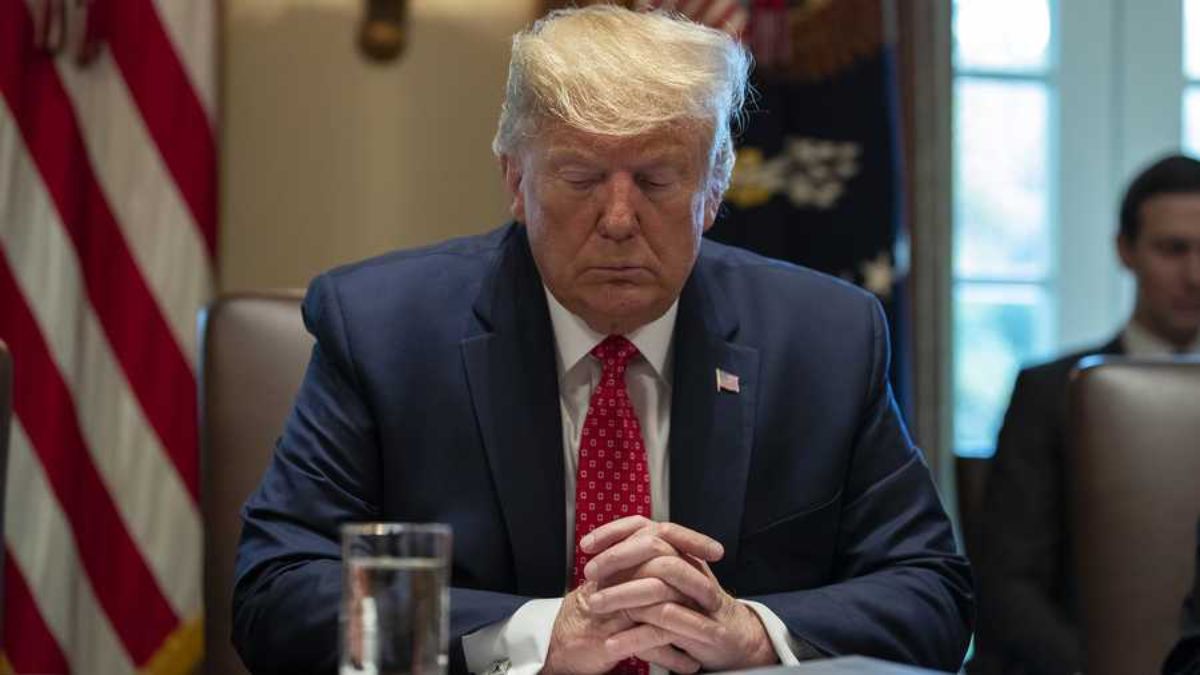President Donald Trump has announced the creation of a White House faith office, aimed at targeting “anti-Christian bias” within the federal government and “bringing back faith” in America.
Speaking at the National Prayer Breakfast in Washington on Thursday, Trump outlined a series of measures to combat what he described as growing attacks on religious liberty in the country, particularly against Christians.
“While I’m in the White House, we will protect Christians in our schools, in our military, in our government, in our workplaces, hospitals, and in our public squares,” Trump declared. “And we will bring our country back together as one nation under God.”
In addition to the faith office, Trump also introduced a task force to investigate religious discrimination and a Presidential Commission on Religious Liberty.
So, what role will these three initiatives play, and who will lead them? Here’s everything we know.
‘Move heaven & earth to defend the rights of Christians’
Speaking at a bipartisan National Prayer Breakfast at the Washington, DC Hilton hotel, Trump said that he will create a task force to “eradicate anti-Christian bias.”
Naming new Attorney General Pam Bondi to lead a task force, Trump said that the task force will be ordered to “immediately halt all forms of anti-Christian targeting and discrimination within the federal government,” including at the Department of Justice, the Internal Revenue Service and the Federal Bureau of Investigation.
The new task force would work to “fully prosecute anti-Christian violence and vandalism in our society, and to move heaven and earth to defend the rights of Christians and religious believers nationwide,” Trump said highlighting the example of Paulette Harlow, an anti-abortion activist who was prosecuted during the Biden administration for praying in front of an abortion clinic and blocking its access.
She was sentenced to two years in prison for violating federal law.
In his first week in office, Trump pardoned 23 anti-abortion activists, including Harlow, whom he said was jailed for “peacefully praying”. He justified the pardon by claiming that Harlow and her co-conspirators had seen federal law enforcement “selectively weaponised” against them for their Christian faith.
The White House faith office
At the National Prayer Breakfast, President Donald Trump announced the creation of a new “religious office” at the White House, known as the faith office.
Leading the office will be Reverend Paula White, a controversial televangelist and longtime spiritual adviser to Trump. White, 57, is a prominent figure in the prosperity gospel movement, which preaches that faith can bring material wealth and personal success—a belief that has led many Orthodox Christian leaders to brand her a “heretic.”
Her appointment has triggered strong reactions on social media, with critics questioning her theological stance and qualifications.
President Trump’s spiritual advisor, false Bible teacher, Paula White pic.twitter.com/QEytsktvBr
— Terri Green (@TerriGreenUSA) February 6, 2025
Did Trump’s ’near death’ experience shape the idea for faith office?
During his address, Trump said that his relationship with God deepened after he survived two assassination attempts during his campaign.
“It changed something in me,” he said. “I feel even stronger. I believed in God but I feel much more strongly about it.”
However, this is not the first time Trump has set up such an office. During his first term, he had a similar faith initiative and frequently sought guidance from a tight-knit group of evangelical advisers.
Hours later, Trump announced the creation of a Presidential Commission on Religious Liberty. The commission, alongside the faith office, will be tasked with defending religious rights in the country.
Later that day, Trump also signed an executive order , directing the new task force to identify unlawful policies, practices, or conduct by executive departments and agencies, and recommend further presidential or legislative action.
Is ‘anti-Christian bias’ on the rise in America?
While the previous Biden administration focused on national strategies to combat Islamophobia and antisemitism following the October 7 attacks, Trump’s task force will instead focus on discrimination faced by Christians in the US.
While nearly two-thirds of US adults identify as Christian, and though the share of religiously unaffiliated Americans is growing, Christians still make up — by far — the largest religious group in the US.
That does not mean Christians have not faced instances of discrimination, according to Dr Michael A. Helfand, the Brenden Mann Foundation Chair in Law and Religion at Pepperdine Caruso School of Law.
“We certainly have seen confirmed instances of the failure to adequately protect the religiously Christians in the United States,” Helfand told Deseret News. “The highest court in the country has itself found such occasions.”
He pointed to key Supreme Court rulings on religious liberty, including Masterpiece Cakeshop v. Colorado Civil Rights Commission and Fulton v. Philadelphia, where the court determined that Christian beliefs were not properly respected in the country.
A 2023 survey by the Survey Center on American Life revealed similar concerns, with White evangelical Christians—Trump’s strongest religious supporters in 2020—widely perceiving discrimination. Almost 60 per cent of White evangelicals said they face “a lot” of discrimination in the US.
Still, measuring whether these are isolated cases or part of a larger pattern of anti-Christian bias remains a challenge. “But maybe what you need is somebody to study it, to see what’s going on. And a task force is a good thing to do that,” Helfand said.
With input from agencies


)

)
)
)
)
)
)
)
)



